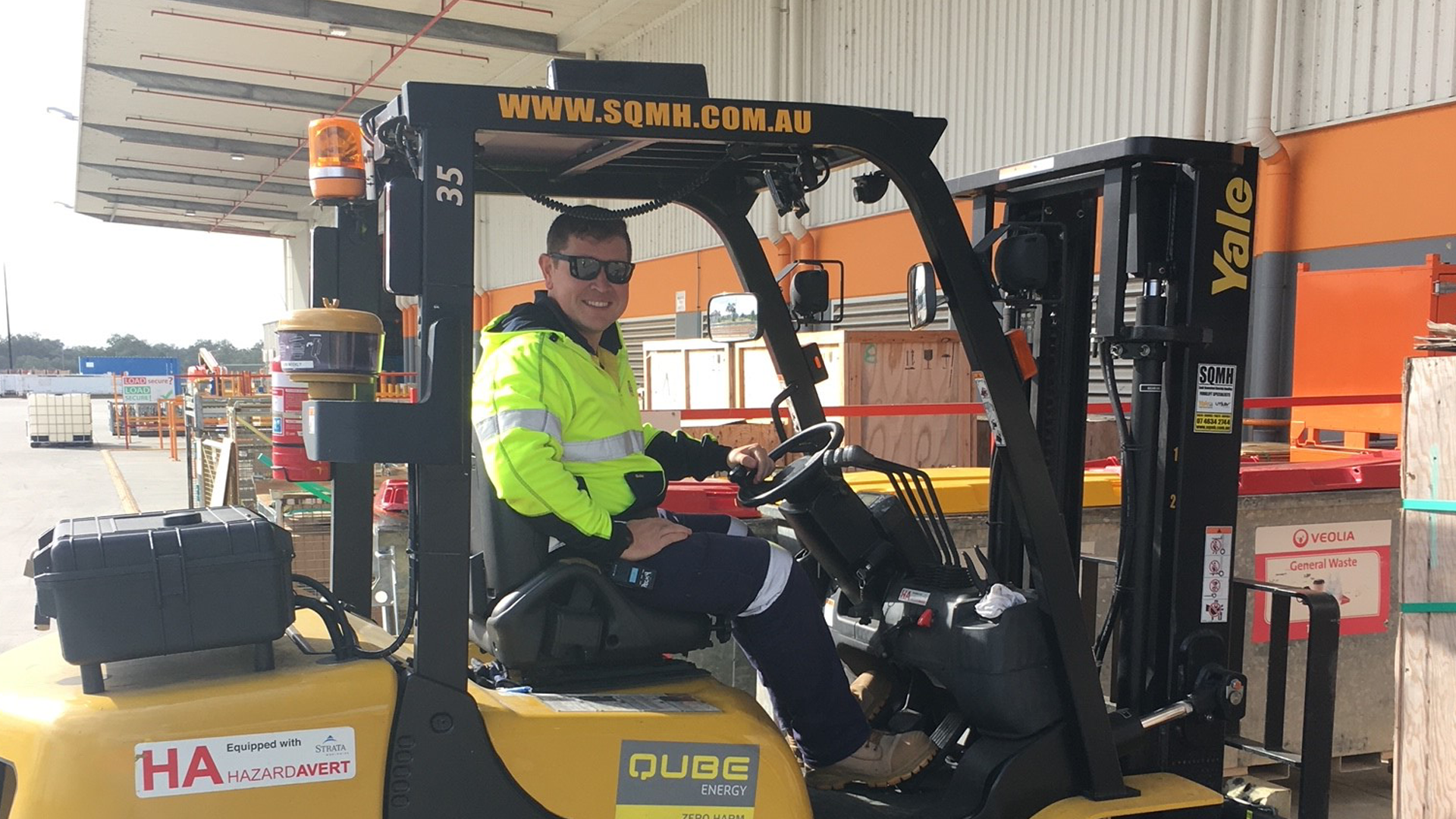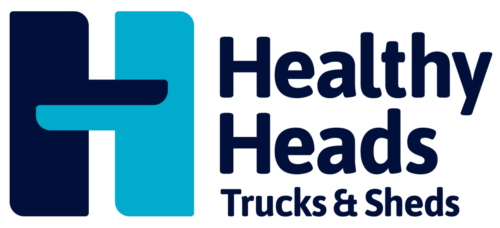
Teagan
Meet Teagan, Queensland Manager, Qube Energy
Teagan, 32, works in warehousing, logistics and transport for the oil and gas industry. His career kicked off ten years ago in Darwin as a casual stevedore, before he became a forklift operator and took on various leadership roles. He is now the Queensland Manager for Qube Energy and is based in Chinchilla, three hours inland from Brisbane. Teagan’s work in frontline and managerial roles, has given him unique insights into the challenges of the industry and how businesses can build mentally healthy workplaces.
Teagan: Early in my career, as a forklift operator and a team leader, I moved from job to job because I was on short term contracts. That’s not uncommon in our industry, but it brings with it a whole heap of uncertainty. You’re constantly wondering when your next job will be and trying to line up consistent work. On top of that, I started out during an oil and gas downturn, which meant people were being moved around to other contracts or laid off fairly regularly. It added a lot of pressure and stress that I wasn’t prepared for.
Now that I’m in a management role, challenges still exist, but they’re different. I moved to Chinchilla on my own two years ago without knowing a single person. The town was new, the job was new, and I was coming home to an empty apartment every afternoon. Stepping into a senior position and not having someone to lean on or turn to after a day’s work was tough and lonely. I eventually reached out to someone at the same level as me for support, and while it was one of the scariest moments of my life it was a huge relief to get things off my chest. It’s taken time to adapt, build new friendships and get to know my team.
Our company has a fairly flat structure, so managers get to know their staff really well, and you end up supporting them across varying issues – whether it’s sickness, money struggles or family challenges. A few years ago, most of our workers were ‘drive in drive out’, which meant they had to leave their families for a week or so, and many would come to work stressed. We’re slowly changing that by building a localised workforce, so people feel calmer at work and don’t have to be away from home for extended periods. I really think it’s making a difference to the culture too because there’s stability within the team.
In my role, I’m focused on building a culture that enables two things – people feel comfortable reaching out for support when they’re not doing well, and workers feel confident checking in on their colleagues when they notice a change. I think it’s important to have both skills in the workplace because many people, especially males, struggle bringing up their issues but find it easier to talk when prompted. Another thing I’ve noticed over the years is just how different everyone presents when they’re going through a hard time. We’ve had some people turn up to work and I can tell immediately from their appearance, body language or attitude that they’re not OK, but then I’ve also been completely thrown by someone telling me they split from their wife 12 months ago, and despite me working closely with them, I never knew. Making conversation a regular thing can create a culture where people are constantly there for each other, and you don’t miss the signs.
It happened to me the other day. I’d been a bit reserved because of an incident that had affected me, and one of my staff walked over and asked, ‘hey, are you OK?’. I felt really proud that we have a team that genuinely feels comfortable checking in on colleagues regardless of their role. It can be scary starting conversations for the fear of the answer you might get, and not knowing how you can support, but it’s always better to ask and let them know you are there and that you care. It’s about building meaningful relationships and showing compassion and empathy.
Leaders and managers also play a big role in setting the tone for organisational culture. I would encourage managers and leaders building a culture of trust and authenticity, to allow yourself to be seen, and don’t put on a façade. Last year was the launch of ‘R U OK? in Truck & Sheds’ and I was keen to do a presentation in the lead up, so it wasn’t just a ‘day’ that came and went. I was chatting to a customer of mine about how I wanted to share some of the struggles happening in my life at the time – my brother had been in an accident and two people close to me had attempted suicide – but I was worried I would lose credibility as a manager, so I said maybe I’ll stick with sharing statistics and more general info. He said, ‘absolutely not – your staff need to know that you face challenges too, that’s the only way you make change’, and he was right. Shortly after I spoke, one of the more hardened staff members came up to me and said, ‘my brother took his life and listening to you talk about that makes me know I can talk about it’. I’d opened more doors for people to have conversations. It’s about being vulnerable, being a real person and being open to talk. It was an incredibly powerful moment, and one I will carry with me forever.
I think it’s also important to acknowledge that creating a culture of care means not only looking out and being there for others but looking after yourself. It’s different for everyone but for me it was journaling, reading more, minimising screen time and taking breaks from social media. In my role, my brain is constantly on the go and I’m already trying to fix tomorrow’s problem, so to take a step back is something that has been really important to my wellbeing and helps me show up at work in the best way that I can.
R U OK? in Trucks and Sheds is more than just a day of action. It’s giving time for conversation and time to connect as humans. And the more time we give, the more chance we have of growing a supportive and productive workplace. In this industry, if we have a forklift incident we’ll do a stop for safety, release safety alerts and investigate it. Why? Because we know it’s going to create a better business by making us safer. If we’re not doing the same for our mental health, then we aren’t safer. We must invest in both the physical and psychological safety of staff to thrive.
Get behind the day, bring your team together, find champions in the business to help support this movement and get the conversations rolling.
Click here for practical tools and tips on how to drive conversations and ask, ‘are you OK?’




